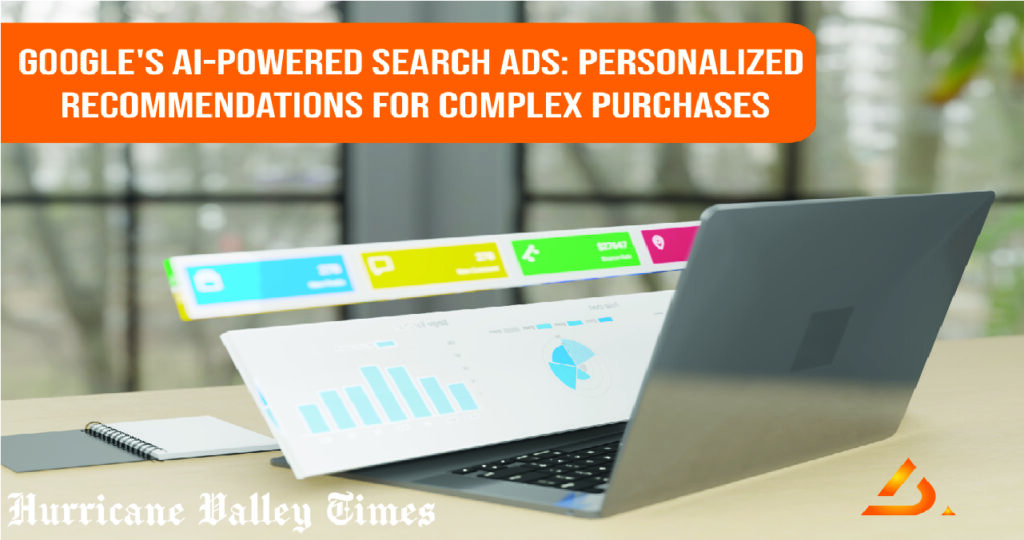The world of Search Ads is on the brink of a groundbreaking shift. Google is testing a revolutionary approach that harnesses the power of Artificial Intelligence (AI) to steer consumers through intricate purchase decisions, all within the confines of Search Ads results. This blog post delves into the intricacies of this exciting experiment, exploring its potential benefits, its implications for advertisers and consumers, and the boundless possibilities it holds for the future of search advertising.
Understanding the Challenge: Friction in Complex Purchases
While the convenience of online shopping has become a norm in our societies, the traditional search ad model often falls short when it comes to complex purchases. Consider searching for a “new camera” – you’re bombarded with a multitude of ads promoting various types of cameras and selling platforms, without any brand specificity. This approach fails to address the myriad factors that typically influence a camera purchase decision, such as the intended use, the required lens type, or compatibility with existing equipment.
This is the reason why we see Google’s search ads that are powered by artificial intelligence. There is no room in the process of such intermediate Search Ads points – dictionaries’ purpose is to close the gap between the first Search Ads query and the rational decision on the purchase. These ads can also be quickly developed with the aid of artificial intelligence to fit the customer’s needs closely by giving him a unique experience.
AI in Action: A Personalized Shopping Assistant within search ads
Let’s revisit the “short-term storage” example. Traditionally, clicking on a storage facility ad would lead you to their website, where you’d need to navigate through information and size options to determine the most suitable unit. With Google’s AI-powered experience, the process becomes more streamlined:
1. Clicking the Ad Initiates an Interactive Experience: After clicking on the storage facility ad, instead of being directed to a separate website, you might encounter an AI-powered interface directly within the Search Ads results page (SERP).
2. Providing Context through User Input: This interface could prompt you to upload photos of the items you need to store. This visual data offers invaluable information for the AI to assess your storage needs.
3. Budget Considerations: You can also share your budget constraints. This allows the AI to tailor its recommendations to storage units that fit your financial limitations.
4. AI-powered Recommendations: Based on the uploaded photos and budget information, the AI analyzes your needs and recommends the most suitable storage unit size. It may suggest additional services like packing materials or climate-controlled storage options.
5. Seamless Transition to Purchase: With a clear understanding of your requirements, the AI connects you to the storage facility’s website to complete the purchase.
They are self-employed and alleviate the need to browse through general information that the advertiser may offer on their website. With expertise in search engine optimization Mississauga, they help you make the right decision for your specific circumstances, ensuring it will be a good purchase decision.
A Win-Win Situation: Benefits for Advertisers and Consumers
The potential benefits of AI-powered search ads are significant for both advertisers and consumers:
· Increased Conversion Rates for Advertisers: Imagine the positive impact on conversion rates for storage facilities! By offering a more relevant and helpful experience directly within the Search Ads results, these ads will likely attract consumers closer to purchasing. This translates to higher ROI (Return on Investment) for advertisers.
· Improved Customer Experience for Consumers: Consumers no longer need to research and compare different options. The AI-powered experience streamlines the process by providing personalized recommendations that perfectly match their needs. This translates to a more efficient and less frustrating shopping journey.
However, it is necessary to recognize that there can be a particular issue of exchange of corresponding values in terms of PPC marketing companies. Based on this new experience of the users taking place directly on the SERP, it could be disastrous to the overall traffic owned by specific advertiser websites. This indicates that ad investors must shift gears and ensure the quality of AI-based ad experiences within the search engine arena.
The Future of Search Advertising: Intelligent, Interactive, and User-Centric
While the potential benefits are undeniable, some questions remain regarding implementing AI-powered search ads. Here are a few key considerations:
· Privacy Concerns: Using user data, such as uploaded photos and budget constraints, raises privacy concerns. Google must ensure transparency and robust data security measures to gain user trust for this new format.
· Regulation and Bias: As AI plays a more prominent role in advertising, regulations may need to be developed to address potential biases in AI algorithms. Fairness and transparency in generating recommendations will be crucial for consumer trust.
While AI is adept at data analysis and personalization, the role of creativity in advertising remains vital. The ability to tell a compelling story to engage and captivate an audience is a unique human skill that AI cannot replicate. Finding the right balance between AI-driven recommendations and creative branding will be critical to capturing consumer attention and ensuring the continued relevance of human creativity in the advertising landscape.
Wrap Up
In conclusion, Google’s search ads based on artificial intelligence can be considered a significant breakthrough in the modern tendencies of web promotion. In terms of consumers, this technology may give them what they have always wanted during complex purchases – a kind of experience that is informative and entertaining. In the future, as AI technology is improving and Eliminating these concerns, people are likely to encounter artificial intelligence-based search ads more frequently, which will revolutionize how a user deals with search engines and make shopping online as simple as a walk in the park.
This new era in search advertising carries the picture of the future where spearheaded by sophisticated algorithms, we shall be assisted in decision-making processes that involve a lot of considerations, such as shopping. In our daily use of these networks as consumers, we can appreciate the convenience and effectiveness of receiving token recommendations from an intricate AI network. While marketers must adjust to this new landscape, advertisers must shift entirely towards developing effective AI-leveraged conversations within the search engine. Last but not least, the future of AI-enabled search ads depends on the possibility of regaining people’s trust, respecting their privacy, and preserving the synergy between the opportunities AI can offer and the value of artful storytelling. Search advertising will remain a powerful advertising technique, and the atmosphere of free experimentation created by Google opens many exciting opportunities to make web shopping even more personal, active and engaging.

